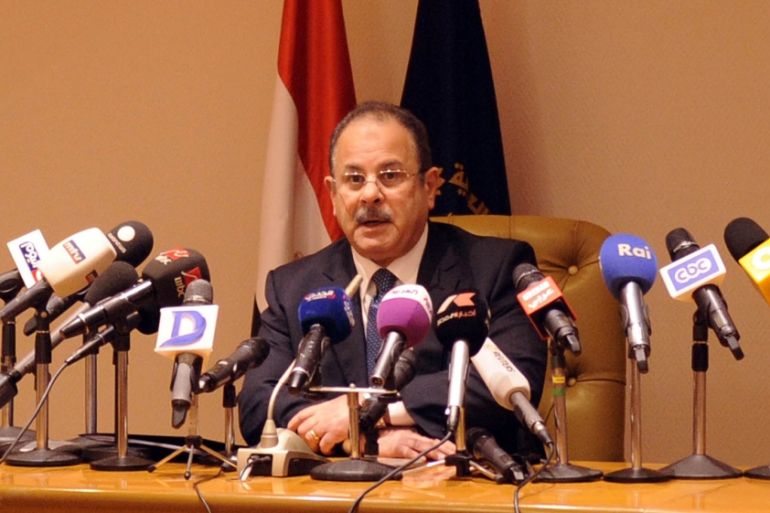2015 killing: Egypt claims Hamas-Brotherhood hand
Palestinian group denies it aided Muslim Brotherhood leaders in plotting 2015 car bombing which killed chief prosecutor.

Egypt’s interior ministry says the Muslim Brotherhood and the Palestinian group Hamas were behind the 2015 killing of Hisham Barakat, the chief prosecutor.
In a press conference in Cairo on Sunday, Magdy Abdel-Ghaffar, the interior minister, said the assassination was ordered by Turkey-based leaders from the Muslim Brotherhood group.
Keep reading
list of 4 itemsIsraeli air attack kills three sons of Hamas chief Ismail Haniyeh in Gaza
ICJ updates: Nicaragua’s case against Germany over Israel’s war on Gaza
How will Iran respond to Israel’s attack on its Damascus consulate?
“This plot was carried out on the orders of the Muslim Brotherhood … in close coordination with Hamas, which played a very important role in the assassination of the chief prosecutor from start to finish,” he said.
|
|
“This is a very big conspiracy that started a long time ago and continued,” Abdel-Ghaffar said. He also accused Hamas of helping to provide training and explosives.
Hamas, which rules the Gaza Strip, swiftly rejected the accusations.
Egypt has detained 14 people who were suspected to be involved in the assassination, adding that all those arrested were trained in the Gaza Strip by Hamas.
Abdel-Ghaffar ended the press conference by showing a video that documents periods in Egyptian history where the Muslim Brotherhood was allegedly responsible for assassinations and violence.
The video also showed alleged suspects confessing their involvement with the group.
Barakat was killed in a car-bomb attack in Cairo last June. He was the most senior state official to die at the hands of armed groups since the toppling of Mohamed Morsi from the presidency in 2013.
READ MORE: Mass hunger strikes at Egypt’s infamous Scorpion prison
There was no confirmed claim of responsibility.
Gamal Heshmat, a senior member of the Muslim Brotherhood in exile, dismissed the government’s accusations as an ongoing effort by the Egyptian government to “demonise” the Brotherhood.
|
|
“Their accusations do not contain any credibility; they only reflect failures of politics and security,” he told Al Jazeera.
Judges and other senior officials have been targeted by armed groups opposed to President Abdel Fattah el-Sisi and angered by prison and death sentences imposed on members of the Muslim Brotherhood and other government opponents.
Barakat’s killing cast doubt on Egypt’s ability to contain a rise in violence targeting prominent government officials.
Egypt is battling fighters based in Sinai who have killed hundreds of policemen and soldiers since Sisi, then military chief, deposed Morsi after mass protests against his rule.
The Brotherhood was banned soon after and declared a “terrorist” organisation.